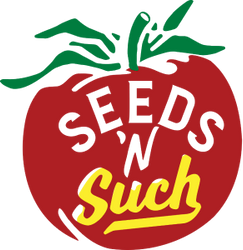
Crucifer Benefits We’re Missing; More Crucifers & Companion Plants
In a list of 10 Things About Kale Whether You Like It Or Not at the website www.enrichyourlifecoaching.com, we learn more about the special health benefits we’re missing by not including kale in our diets, and kale is just one of the many cruciferous vegetables we need to consider growing in our gardens. Our “10 things about kale” include:
- Kale has more than twice the Vitamin C of an orange.
- 1 cup of kale has 133% of a person’s daily Vitamin A.
- The Brassica oleracea family consists of other favorites like broccoli, cauliflower and Brussels sprouts.
- 1 cup of kale has 121 milligrams of ALA, an Omega-3 fatty acid that’s good for brain health.
- ½ cup of kale contains roughly 25 milligrams more calcium than milk.
- Kale’s vitamins are better absorbed when eaten with good fats like those found in avocado or olive oil.
- Store kale in a plastic bag with as much air pushed out as possible. FYI, the longer it’s stored the more bitter and less nutritious it becomes.
- Highly resilient, kale is said to be sweeter after exposure to frost.
- “Kale” was a popular hipster name in 2013. Perhaps 2014 will show some love for “Broccoli”?
- Get it organic, or better yet, grow your own from seed. Kale is one of the most likely (conventional) crops to have residual pesticides at the supermarket.
According to the website www.beatingpancreatitis.com, Cruciferous Benefits That Reduce Pancreatic Cancer Risks are: (1) Destroys cancer; (2) Reduces inflammation; (3) Balances blood sugar; (4) Supports detoxification; (5) Stimulates immunity; (6) Shrinks tumors; (7) Protects brain and (8) Balances estrogen.
In a chart at www.healthswift.blogspot.com is more detailed information on the nutrient value of certain crucifers:
Cruciferous Vegetables Nutrient Content
Amount for each vegetable = 100 calories
Nutrient Broccoli Brussels Sprouts Cabbage Collard Greens Kale
(chopped (boiled) (shredded (chopped & (chopped
& steamed) & boiled) boiled) & boiled)
Vit A (IU) 5178 1840 600 12,008 26,455
Vit B1 (mg) 0.20 0.28 0.27 0.16 0.19
Vit B2 (mg) 0.41 0.20 0.24 0.40 0.25
Vit B3 (mg) 2.13 1.56 1.27 2.20 1.51
Vit B5 (mg) 1.8 0.64 0.64 0.83 0.17
Folic Acid 213 154 91 357 48
(mcg)
Vit C (mg) 279 159 91 70 147
Vit E (mg) 1.70 2.18 0.70 3.37 2.58
Vit K (mcg) 351 359 221 1422 2921
Iron (mg) 3.1 3.1 0.79 1.76 3.22
Mg (mg) 88 51 36 65 64
Mn (mg) 0.77 0.57 0.55 2.16 1.49
P (mg) 234 143 68 100 100
K (mg) 1146 810 439 998 815
Zinc (mg) 1.41 0.51 0.42 1.62 0.72
Protein (g) 10.6 6.5 4.6 9.5 6.8
Fiber (g) 10.6 6.7 10.5 10.7 7.15
Omega-3 0.45 0.43 0.52 0.36 0.36
fatty acids (g)
There are quite a number of vegetables in the cruciferous family. The list at GardenSimply.com names: Horseradish, Land Cress, Ethiopian Mustard, Kale, Collard Greens, Chinese Broccoli (Kai-lan), Cabbage, Brussels Sprouts, Kohlrabi, Broccoli, Broccoflower, Broccoli Romanesco, Cauliflower, Wild Broccoli, Bok Choy, Komatsuna, Mizuna, Rapini (Broccoli Raab), Flowering Cabbage, Chinese Cabbage (Napa Cabbage),
Turnip Root & Greens, Rutabaga, Siberian Kale, Canola (Rapeseed), Wrapped Heart Mustard Cabbage, Mustard Seeds (Brown) & Greens, Mustard Seeds (White), Mustard Seeds (Black), Tatsoi, Arugula (Rocket), Garden Cress, Watercress, Radish, Daikon and Wasabi.
Seeds ‘n Such offers seeds for many of these crops as well, so those interested in trying even more of these nutritious, cancer-fighting and immunity-building plants can get their non-GMO, untreated seeds here.
Also at the website ahealthylifeforme.com, there is a list of companion plantings for cruciferous vegetables that benefit growth and help drive away pests. Gail Gardner recommends Garlic and Onions, Geraniums, Celery, Potatoes, Beetroot, Dill, Sage and Rosemary as “good neighbors” for your Broccoli, Kale, Cabbage and Cauliflower. We also offer seeds and plants for most of these varieties, so place your orders now.
